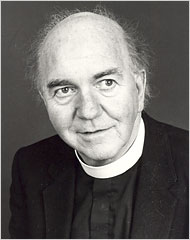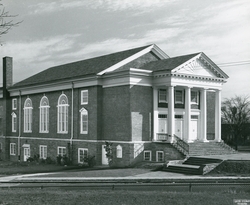Abuse of Power: Recent thoughts
 Friday, November 16, 2018 at 8:43PM
Friday, November 16, 2018 at 8:43PM  The book
The book
We know that some of you are wondering when the abuse of power book will be available. Here’s a story – long ago, around 1995, Ascension Press asked me to write a book on the four core frameworks used in CDI (now Diocesan CDI). They even gave me an advance. In 2001 or so, I returned the advance. I just wasn’t ready. It finally got published in 2008 as Fill All Things: The Dynamics of Spirituality in the Parish Church.
In the MBTI system Michelle Heyne and I are both INFPs. We tend to work in spurts and seek “the perfect.” Makes for slow writing (except for when it doesn’t).
All of which is to say, we are working on four books at the moment. The abuse of power book isn’t at the top of the list. So, maybe 2019; or 2029. As we’ve gotten into it, we’ve realized that we need to do more interviews at all levels of the church system. That will take some time. If that goes on too long we may restore the abuse of power blog.
Note: the picture is John Macquarrie
In the meantime – a few recent thoughts.
I have the right!
When I was a very new consultant, maybe around 1975, the bishop sent me to do conflict management work with a suburban parish. I was very green. Ordained a priest only 4 years earlier, I was many years the junior of the rector of that parish.
I walked into the room where we were to meet. There was a large table in the center of the room. Most people were hugging the walls, talking in small groups. Around the table were three members of the vestry. At the head of the table was the rector. His hands rested on a book. As I moved closer to introduce myself, he stood; that’s when I saw the book. It was a copy of the Constitution and Canons. My heart dropped. “Not a good sign” I thought.
I’ve only had a handful of situations where the rector or vicar tried to address a conflict by asserting his or her rights. In most, things ended poorly for the priest’s position. I hope things were better for the priest’s soul.
When you’re justifying your actions based on the rights of positional authority instead of what’s right to do – you’re probably in trouble.
The seeking of power
From time to time I return to John Macquarrie’s Principles of Christian Theology. Sometimes it’s interesting to see what I underlined, and see the notes placed in the margins. A few weeks ago, I rediscovered the margin note, “abuse of authority.” (quotes on page 430)
“What the New Testament – with Christ himself – undoubtable does condemn is the seeking of power and preeminence among Christians, and the exercise of authority in a self regarding way. It might be confessed that there has been plenty of this in the church, and that the experience of it has kindled in some the distrust of what they call “prelacy.” The Church, after all, is only on its way to holiness, and so sin remains, and even the offices of the church can be used (or rather, abused) By careerists in search of notoriety and power. Spiritual authority gets confounded with worldly position, and as a result the whole conception of spiritual authority and the offices to which it attaches are brought into disrepute.”
The sin of pride -- universal
Macquarie notes both the universal reality of the sin of pride and how there’s “plenty” of power seeking in the church. True! We have many careerists. Too many clergy who find it difficult to use their authority properly – on behalf of Christ instead of in self-regard. Most are intelligent enough to do a bit of proof texting and rationalization as they excuse their behavior. Very hard to get them to actually have a listen-respond type conversation.
“But once again, Abusus non tollit usum. The sin of pride which leads to these perversions of the ministerial offices is so universal that in any case the abolition of the offices will not prevent this sin from making its inroads. Even in Christian groups which abhor “prelacy” and pride themselves on the “parity” of their ministers, there is no lack of power politics. Indeed, the game is played even more dangerously, because it depends on invisible pressures, the cult of personalities, and many other hidden factors through which power and authority can be exercised behind the scenes; if there always is the risk of power, surely it is better that it be openly attached to public offices. But the true Christian authority is not this kind of power at all, nor does it feed anyone’s ego. It is an authority that is conferred by Christ. It is not “earned” by the holder of the office nor can it be to him a cause of pride. It is a responsibility laid upon him to be an “ambassador” of Christ and to speak “on behalf of Christ.”(2 Cor. 5:20) The authority belongs to the office, to the church, ultimately to Christ from whom the office has come.”
Checks & Balances
Two news items today caught my attention. Both were related to the increase in autocratic behavior on the part of those in positions of power. We see it on both the left and the right. It’s there in government, industry, education and the church.
Both articles were about people in power attempting to silence and remove difficult people. Autocrats work at trying to reduce the role and visibility of people who make them uncomfortable.
The first was the story of CNNs Jim Acosta’s struggle with the President over his White House press pass. The second was about Vladimir Putin’s efforts to silence Aleksei Navalny, an opposition politician. Federal judge Timothy Kelly, a Trump appointee, issued a restraining order forcing the White House to restore the press pass. The European Court of Human Rights ruled that the Russian government has abused its powers.
All that brought to mind one of the weaknesses in the church’s system to manage abuse. We have no truly independent court system. And we certainly have no reliable way to quickly restrain a leader’s abuse. We lack checks and balances.
How can we reform the system so that truth and justice might be asserted in a timely manner? A wise and independent voice that can call a leader from self-regard and power-seeking to humility and Christ.
rag+





